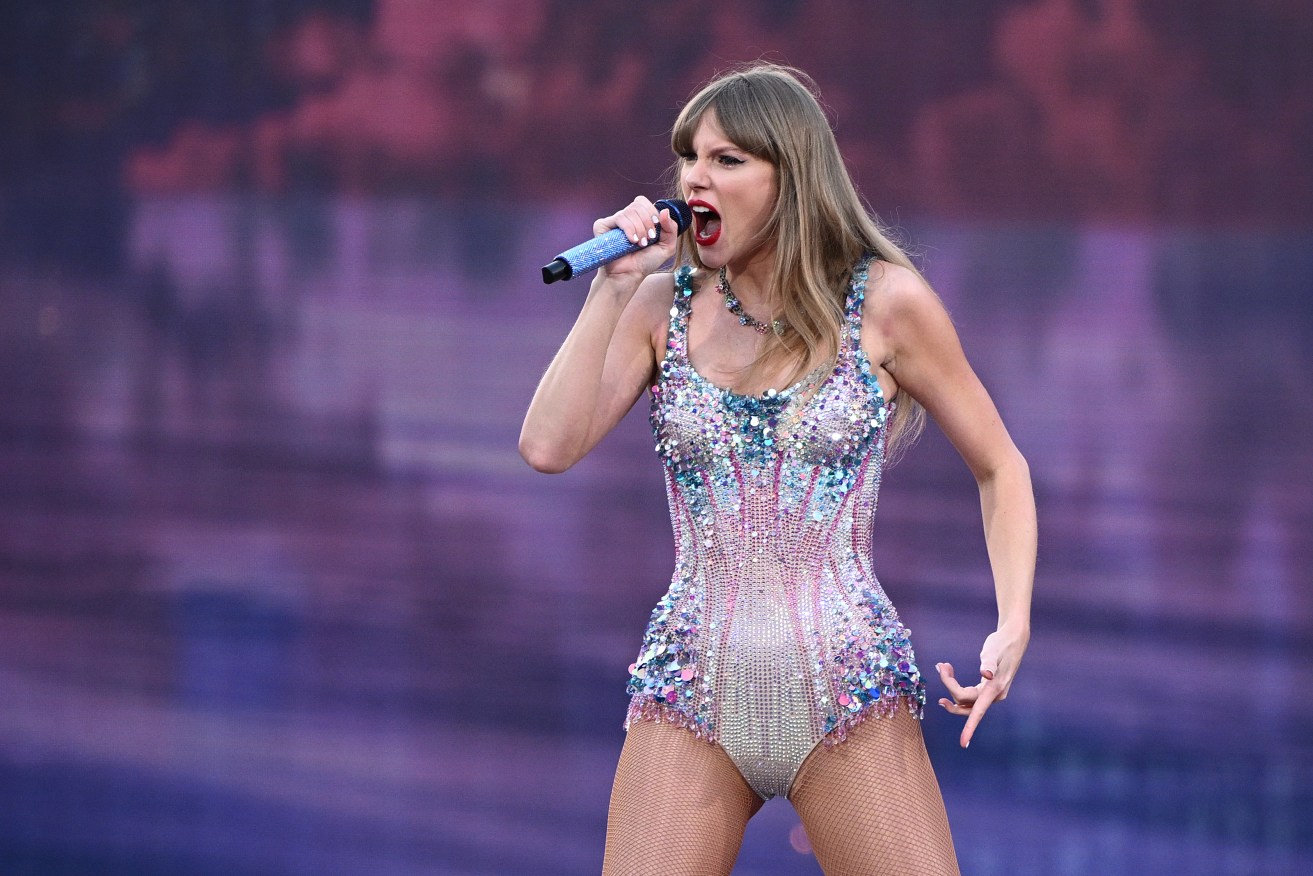Why cancelling Splendour is just more proof that our economy is in Dire Straits
The scrapping of the Splendour in the Grass festival is a blow for the music industry but business would also be looking on in horror at that decision and the dramatic changes in spending that led to it.


American singer songwriter Taylor Swift performing during the first night of the The Eras Tour in Australia at the Melbourne Cricket Ground, Melbourne, Friday, February 16, 2024. Taylor Swift's Eras Tour has descended on Melbourne, with the pop megastar expected to perform in front of the biggest crowds of her career so far. (AAP Image/Joel Carrett) NO ARCHIVING, EDITORIAL USE ONLY, NO COMMERCIAL USE, NO PUBLICATION COVERS
While sections of the Queensland economy continue to show signs of strength, consumers, particularly the young ones, have given up. Not even Taylor Swift could lift Queensland’s consumer out of the doldrums, like she did in southern states where her concerts were held.
In February, while other states enjoyed a lift in retail sales via the Taylor Swift phenomenon, in Queensland they fell 0.5 per cent, the worst in Australia.
According to Westpac, consumption per person has been falling in Australia, unlike patterns in countries similar to our own. Spending in the December quarter came to a crashing halt. It also believes the Queensland economy is facing a “raft of pressures”.
“On a per capita basis, declines through 2023 are evident across each of the mainland states, most notably on the eastern seaboard of Victoria, NSW and Queensland, with falls in the order of 2.7 per cent,’’ Westpac said.
“Most notably, the ‘trifecta’ of high inflation, elevated interest rates and additional tax obligations have presented as major headwinds, detracting substantially from robust nominal income gains and leaving many households in a fragile state,” Westpac said.
“Queensland households have pulled-back spending accordingly, consumption in the state broadly flat over 2023 (–0.1 per cent).
“Most of the weakness has appeared in discretionary spending, with recreation and culture (–2.3 per cent), hospitality (–1.7 per cent) and cigarettes, tobacco and alcohol (–8 per cent) all declining.”
The decision to scrap Splendour in the Grass, just over the border at Byron Bay, and a host of other festivals, comes as young people especially are facing cost pressures. Rents, mortgages and inflation have hit this part of the community very hard.
Even with her star power, Kylie Minogue, who was headlining Splendour, could not get people to spend and save the festival. In this instance she has to bow to the economic power of the Swifties.
Economists believe that many young people, who were forced to find other forms of entertainment during the pandemic when concerts were impossible, are proving hard to lure back.
A lot of that is due to two years of falling living standards through declining real incomes. Job vacancies in Queensland also fell by 11 per cent in February, the biggest drop nationally.
But the worst could be over. Economists are looking into the next year with a far rosier outlook than they did a year ago.
But it is an uphill struggle. Inventories have been run down and equipment investment slumped.
It is also expected real wages growth will slow this year.
Westpac’s “raft of pressures’’ for Queensland included the crippled construction sector and elevated costs, “intense competition for resources’’ and lingering capacity constraints.
Already we are seeing unemployment start to creep up and the expectation is that it will rise.
House prices, which are often a feel-good factor for consumers, continue to rise but Westpac believes they are also coming off the boil and business investment is believed to have reached its peak in the state and was now “cresting’’.
On the positive side, the state’s project pipeline is increasing as the tenders for the first Olympic infrastructure projects is due to start soon.
However, economic growth is expected to be around 2 per cent, well below the 3.5 per cent average.
But there could be some relief on the way. Westpac indicated that it expected policy support from mid-year to ease some of the pain and in Queensland, the Government is expected to have an extra $2.5 billion above its forecasts thanks to coal prices.
Economist Gene Tunny came up with his expectations for the Queensland Budget recently and revealed that Treasury could have a nice surprise in order.
“On my calculation, coking coal prices have averaged around $US300 a tonne this financial year to date, compared with the current state Budget assumption of $US241 a tonne,’’ Tunny said.
“If average coal prices remain around 25 per cent above the assumed level for 2023-24 (possibly too optimistic an assumption given the trajectory of the coal price) that would mean an additional $2.5 billion in coal royalties this financial year on top of the $9.2 billion already forecast.’’
According to Australian coking coal quotations (FOB Australia) fell by 11.7 per cent over two weeks in March (March 1-14) to $US270.9/t compared to the beginning of the month.












